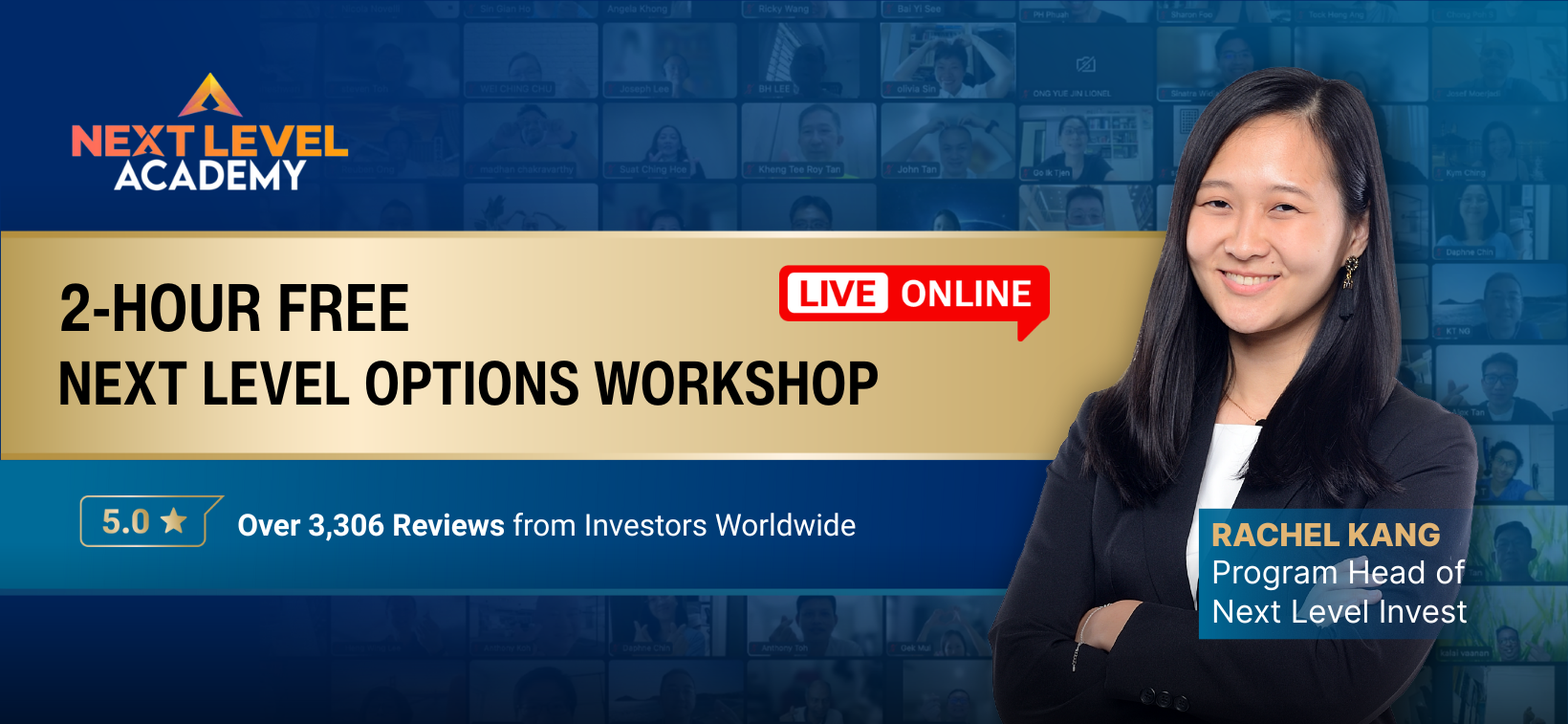- Live Life Grow Wealth
- Posts
- 💡Series 5 Day 2: How to Avoid Following the Crowd (Herd Mentality)
💡Series 5 Day 2: How to Avoid Following the Crowd (Herd Mentality)

Today’s Headline
💡 Series 5: Investor’s Mindset & Habits
🧠 Day 2: How to Avoid Following the Crowd (Herd Mentality)
When I first started investing, I remember hearing all the noise —
“Buy this stock! It’s going to the moon!”
“Sell now before it crashes!”
Everywhere I looked, everyone seemed to have an opinion. Social media, friends, colleagues — all talking about the next big thing.
It felt exciting. But it was also confusing. Because deep down, I realized something important: most people weren’t thinking for themselves. They were simply following the crowd.
And that’s how many investors get into trouble — not because they lack knowledge, but because they get swept up by herd mentality.
Today, I want to share why following the crowd is one of the biggest traps in investing and how you can avoid it.
Want to get smarter — not just richer? Tap into curated financial wisdom from Money and stay ahead of the next big move in investing.
Get in on the markets before tech stocks keep rising
Online stockbrokers have become the go-to way for most people to invest, especially as markets remain volatile and tech stocks keep driving headlines. With just a few taps on an app, everyday investors can trade stocks, ETFs, or even fractional shares—something that used to be limited to Wall Street pros. Check out Money’s list of top-rated online stock brokerages and start investing today!
🐑 What Is Herd Mentality?
Herd mentality simply means doing what everyone else is doing — not because you’ve analyzed it, but because it feels safe to belong.
It’s human nature. We see a crowd running, and our instinct tells us to run too — even if we don’t know why. In investing, this often shows up as:
Buying a stock because “everyone is buying it.”
Selling in panic because “everyone is selling.”
Copying others without understanding the reason.
It feels comforting to follow the majority. But comfort doesn’t create wealth — clarity does.
💭 Why We Love Following the Crowd
Before judging anyone for doing it, let’s understand why it happens.
Humans are wired to seek safety in numbers. Thousands of years ago, sticking with the group meant survival. If the group ran from danger, you ran too — it kept you alive.
That same instinct still lives in us today. Except now, the “danger” isn’t a wild animal — it’s the fear of missing out on profits or losing money.
When everyone seems to be making money, our brain screams, “Don’t get left behind!”
And when everyone’s panicking, our brain says, “Better sell before it’s too late!”
This emotional tug-of-war is what drives market bubbles and crashes.
⚠️ Real-Life Example: The Dot-Com Bubble
Let’s go back to the late 1990s. Everyone was talking about internet stocks. Companies with “.com” in their name saw their prices skyrocket overnight.
Investors didn’t care about profits or business models — they just saw others getting rich and didn’t want to miss out.
But when the bubble burst, billions of dollars vanished. People who followed the crowd lost everything.
The few who stayed calm, did their research, and avoided the frenzy? They not only survived — they thrived later by buying quality companies at a discount.
This is what happens when you learn to think independently instead of joining the herd.
The crowd doesn’t think — it reacts.
When prices go up, the crowd gets greedy. When prices fall, the crowd gets fearful.
If you follow the crowd, you’ll always be late:
You’ll buy when prices are high.
You’ll sell when prices are low.
And you’ll repeat the same cycle over and over again.
This is why most investors underperform the market — not because they lack strategy, but because they lack emotional control.
It’s not the market that beats you. It’s your reactions to it.
🔍 The Investor’s Trap: FOMO (Fear of Missing Out)
One of the strongest emotions in investing is FOMO.
You see a stock doubling in a week. You hear people bragging about their profits. You feel this little voice inside whispering, “You’re missing out.”
So, you jump in — only to realize you bought near the top. Soon after, prices fall, and you regret it.
Sound familiar?
That’s FOMO — and it’s one of the biggest weapons herd mentality uses against you.
But here’s the truth: the best opportunities are rarely the ones everyone’s talking about. By the time the crowd notices, the real profits are already gone.
📉 The Other Extreme: Panic Selling
Just as FOMO pushes you to buy high, fear pushes you to sell low.
When markets crash, the crowd panics. People start selling everything — not because they analyzed the situation, but because they’re scared.
In 2020, during the pandemic, global markets fell sharply. Many investors sold their stocks out of fear. But those who stayed calm and patient saw the markets recover faster than anyone expected.
It’s hard to stay steady when everyone else is running. But that’s exactly what separates investors from speculators.
If you can stay calm during fear and greedy during excitement, you’ll always have an edge.
🧠 Thinking Independently: The Investor’s Super Skill
Avoiding herd mentality doesn’t mean you ignore everyone. It means you think for yourself.
Here’s how I practice independent thinking:
I ask “why” before I act. Why is everyone buying this stock? Do the fundamentals make sense?
I look for facts, not feelings. Numbers don’t lie, but emotions do.
I stay focused on my goals. My financial plan matters more than someone else’s success story.
I trust my process. I remind myself that investing is personal — what works for others may not work for me.
Independent thinking is hard at first. But the more you practice it, the easier it becomes to ignore the noise.
Start investing right from your phone
Jumping into the stock market might seem intimidating with all its ups and downs, but it’s actually easier than you think. Today’s online brokerages make it simple to buy and trade stocks, ETFs, and options right from your phone or laptop. Many even connect you with experts who can guide you along the way, so you don’t have to figure it all out alone. Get started by opening an account from Money’s list of the Best Online Stock Brokers and start investing with confidence today.
🧮 The Power of Having a Plan
One of the best defenses against herd mentality is having a clear investment plan.
When you know:
your risk level,
your time horizon, and
your financial goals,
you’ll stop reacting to what others are doing.
A plan keeps you grounded. It reminds you why you invested in the first place. So even when everyone else is panicking, you can stay focused and make decisions based on logic, not emotion.
Think of your plan as your compass — it keeps you on track when the crowd runs in circles.
📊 The Crowd Is Often Wrong
Here’s something fascinating — in financial history, the crowd is almost always wrong at turning points.
They buy when excitement is at its peak.
They sell when fear is at its lowest.
By the time the majority agrees on something, it’s already priced in.
That’s why some of the world’s best investors, like Warren Buffett, love to do the opposite. He famously said,
“Be fearful when others are greedy, and greedy when others are fearful.”
This doesn’t mean you should rebel against every trend — but it means you should think twice before joining one.
🧩 The Psychology Behind Herd Behavior
Let’s break down what happens inside your brain:
Social proof: You assume that if many people believe something, it must be true.
Loss aversion: You fear losing money more than you desire gaining it.
Confirmation bias: You only seek information that supports what the crowd believes.
When these emotions combine, they cloud your judgment. You stop analyzing and start reacting.
That’s why mastering your emotions is more important than mastering market timing.
🌦 The Calm Mind Wins
When markets move wildly, the impatient react. The calm observe.
I’ve learned that the most powerful thing you can do during uncertainty is — nothing.
Take a breath. Wait. Revisit the facts.
Most financial mistakes happen in moments of emotional chaos. When you give yourself space to think, you stop being part of the herd and start being part of the few who truly win.
Patience and discipline may not be flashy, but they always outlast hype.
🧭 Lessons From My Own Mistakes
Let me be honest — I’ve followed the crowd before too.
I’ve bought stocks because friends were talking about them. I’ve held onto investments longer than I should have because “everyone else said it would bounce back.”
And yes, I’ve lost money doing that.
But those experiences taught me something invaluable: if you want to succeed in investing, you must learn to be comfortable being different.
Because wealth isn’t built by following the crowd — it’s built by standing apart from it.
🔒 How to Build Herd Immunity (Financially Speaking)
If you want to protect yourself from herd mentality, here’s what really helps:
Educate yourself regularly. Knowledge builds confidence. Confidence reduces fear.
Stay long-term focused. Think in years, not days.
Avoid too much noise. Limit your time on “financial news” and hype-filled social media.
Surround yourself with rational people. Join communities that value logic, not excitement.
Review your decisions. Ask yourself after every move: “Was this based on my plan or on emotion?”
These habits slowly build mental discipline — your shield against emotional mistakes.
💬 The Freedom of Independent Thinking
Once you stop following the crowd, something amazing happens — you gain clarity.
You stop comparing your journey with others.
You stop feeling jealous of other people’s profits.
You start focusing on what you can control.
And that’s when investing becomes peaceful. You realize that wealth isn’t about chasing trends. It’s about building stability, one calm decision at a time.
Final Takeaways
When you think about it, every major crash or bubble in history started because too many people were thinking the same way.
Crowds can create excitement, but they can also create chaos.
Independent thinkers — those who pause, question, and analyze — are the ones who survive and grow through it all.
It’s not always easy to stand alone. But in investing, standing alone often means standing strong.
🧭 Closing Advice
If there’s one lesson I want you to remember from today, it’s this:
You don’t have to move just because everyone else is moving.
The best investors are like mountain climbers — they move slowly, carefully, and intentionally. They don’t rush because others are running. They trust their steps.
So, the next time you feel that urge to follow the crowd, pause. Ask yourself:
Do I understand this investment?
Is this part of my long-term plan?
Am I doing this because I want to — or because everyone else is?
Trust your own research. Stay calm when others panic. Think clearly when others get emotional.
That’s how you win in the markets — not by being the loudest voice, but by being the quiet, consistent one that thinks for itself.
✅ Call to Action
Take 10 minutes today and look back at your past few investment decisions.
Were they based on your own conviction, or did you follow the crowd?
If you realize you’ve been chasing trends, don’t worry — awareness is the first step toward change.
From today onward, make this your mantra:
“I invest based on logic, not noise.”
Because the real secret to building wealth isn’t following others — it’s following your plan, even when no one else does.
[Live Life Grow Wealth]
🎓 Free Masterclasses to Unlock Your Investment Potential
Take your money skills to the next level with expert-led workshops designed to help you grow smarter and faster.
💥 4 Free Investment Masterclasses Happening This Week — Don’t Miss Out
If you’ve been waiting for the right moment to kickstart your investing journey… this is it.
This week, a series of exclusive free masterclasses are happening live — designed to help you invest smarter, avoid beginner mistakes, and uncover opportunities like seasoned traders do.
In these sessions, you’ll learn how to:
✅ Identify high-potential stocks before the crowd
✅ Build confidence to enter and exit at the right time
✅ Use smart strategies to grow your money steadily
✅ Develop an investor’s mindset for long-term success
Here’s the schedule (U.S. time):
📅 Tuesday, Oct 28 – 8:00 AM to 10:00 AM EST (5:00–7:00 AM PST)
📅 Wednesday, Oct 29 – 8:00 AM to 10:00 AM EST (5:00–7:00 AM PST)
📅 Thursday, Oct 30 – 7:30 AM to 10:00 AM EST (4:30–7:00 AM PST)
📅 Saturday, Nov 1 – 10:00 PM to 11:00 PM EST (7:00–8:00 PM PST, Friday night slot!)
Whether you’re a beginner or someone looking to refine your strategy, these free masterclasses are your chance to learn the insider methods that real investors use — without paying a single cent.
👉 Seats are limited — reserve your free spot now and take your first step toward smarter investing:
Recommendations Section
|
|
|
DISCLAIMER
I make no representations, warranties, or guarantees, whether expressed or implied, that the content provided is accurate, complete, or up-to-date. Past performance is not indicative nor a guarantee of future returns.
I am an individual content creator and not regulated or licensed by the Monetary Authority of Singapore (MAS) as I do not provide investment services.
All forms of investments carry risks, including the risk of losing your entire invested amount. Such activities may not be suitable for everyone. You are strongly encouraged to seek advice from a professional financial advisor if you have any doubts or concerns.








